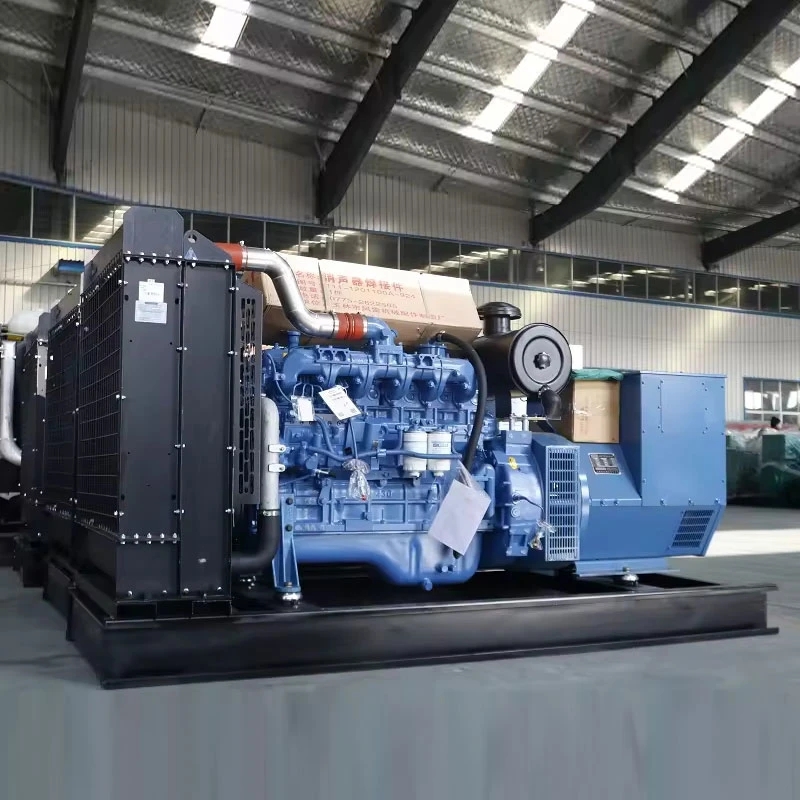Diesel Generators for Testing and Certification Ensuring Reliability and Safety
Introduction Diesel generators are essential power sources used in various industries, facilities, and emergency situations. To ensure their reliability and safety, it is crucial to subject them to rigorous testing and certification processes. This article will delve into the importance of testing and certifying diesel generators, the standards and regulations governing these processes, the key parameters evaluated during testing, and the benefits of certified diesel generators. Importance of Testing and Certification Testing and certification of diesel generators play a vital role in ensuring their performance, reliability, and compliance with industry standards. These processes involve evaluating various aspects of the generator's design, components, and operation to verify that they meet specific requirements. By undergoing testing and certification, diesel generators can be deemed safe, efficient, and reliable for use in diverse applications. One of the primary reasons for testing and certifying diesel generators is to assess their performance under different operating conditions. This includes evaluating the generator's ability to start up, provide continuous power output, and handle varying loads effectively. By simulating real-world scenarios and stress testing the generator, manufacturers and certifying bodies can identify any weaknesses or issues that need to be addressed. Furthermore, testing and certification help ensure that diesel generators meet industry standards and regulations. These standards outline the minimum requirements for design, construction, and performance that generators must adhere to in order to be considered safe and reliable. By certifying compliance with these standards, manufacturers demonstrate their commitment to quality and safety in their products. Standards and Regulations Several standards and regulations govern the testing and certification of diesel generators to ensure their safe and reliable operation. One of the most widely recognized standards in this regard is the International Electrotechnical Commission (IEC) 60034 series, which covers the performance and testing of rotating electrical machines, including generators. In addition to the IEC standards, diesel generators must comply with various national and international regulations depending on their intended application. For example, generators used in critical infrastructure such as hospitals, data centers, and telecommunications facilities may need to meet specific standards set by regulatory bodies like the National Fire Protection Association (NFPA) or the Occupational Safety and Health Administration (OSHA). Key Parameters Evaluated During Testing During the testing and certification of diesel generators, several key parameters are evaluated to ensure their performance, reliability, and safety. 200kw diesel generator for small-scale operations encompass various aspects of the generator's design, components, and operation, and help identify any potential issues that may impact its functionality. Some of the key parameters evaluated during testing include: 1. Fuel Efficiency: The fuel efficiency of a diesel generator is an important consideration, especially in applications where continuous operation is required. Testing evaluates the generator's fuel consumption under different load conditions to determine its efficiency and operating costs. 2. Voltage Regulation: Voltage regulation is crucial for ensuring that the generator delivers stable output voltage within acceptable limits. Testing assesses the generator's ability to maintain voltage stability under varying loads and conditions. 3. Frequency Control: The frequency of the electrical output from a diesel generator must be maintained within specified limits to ensure compatibility with connected loads. Testing verifies the generator's frequency control capabilities under different operating conditions. 4. Start-Up Time: The time taken for a diesel generator to start up and reach full power output is critical, especially in emergency situations. Testing evaluates the generator's start-up time and verifies that it meets the specified requirements. 5. Load Testing: Load testing involves subjecting the generator to varying loads to assess its performance and response. This helps identify any issues related to load handling, voltage regulation, and frequency control. Benefits of Certified Diesel Generators Opting for a certified diesel generator offers several benefits to users, manufacturers, and regulatory bodies alike. Some of the key benefits of using certified diesel generators include: 1. Reliability: Certified diesel generators undergo rigorous testing to ensure their reliability and performance under different conditions. This reliability translates to uninterrupted power supply and peace of mind for users relying on the generator for critical applications. 2. Safety: Certified diesel generators comply with industry standards and regulations related to design, construction, and operation. This ensures that the generator meets safety requirements and minimizes the risk of accidents or malfunctions. 3. Compliance: Certified diesel generators demonstrate compliance with relevant standards and regulations, making them suitable for use in various applications. This compliance is essential for meeting legal requirements and ensuring the generator's acceptance in different industries. 4. Quality Assurance: Certification signifies that the diesel generator has been manufactured according to established quality standards and best practices. This gives users confidence in the generator's performance and durability over its operational life. Conclusion In conclusion, testing and certification are essential processes for ensuring the reliability and safety of diesel generators. By evaluating key parameters such as fuel efficiency, voltage regulation, frequency control, start-up time, and load testing, manufacturers and certifying bodies can verify that the generator meets industry standards and regulations. The benefits of using certified diesel generators include reliability, safety, compliance, and quality assurance, making them a preferred choice for critical applications. Overall, testing and certification play a crucial role in maintaining the performance and integrity of diesel generators in various industries and settings. 